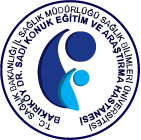ABSTRACT
Objective:
The aim of this study was to evaluate the neurological evaluation of pediatric patients with celiac disease and to compare with adherence to gluten-free diet (GFD) and non-adherence GFD and to evaluate the behavioral characteristics of these patients.
Methods:
The study group consisted of patients with celiac disease diagnosed at the Pediatric Gastroenterohepatology outpatient clinic. The patients’ adherence with GFD was evaluated by history, physical examination and serological tests. Psychosocial and behavioral functioning were assessed using standardized tests consisted of the Turkish version of Strengths and Difficulties Questionnaire.
Results:
Thirty-six children were included in the study. The first group consisted of 17 patients and the second group consisted of 19 patients. In the first group, 2 patients (headache, vertigo) and in the second group 6 patients had neurological symptoms (headache, tremor, paresthesia). There was a significant difference between the two groups (p=0.02). There was a significant difference in behavioral difficulties (p<0.001) and peer relationship problems (p<0.001) between the first and second groups in the GGA subscales. There was no significant effect of disease duration on GGA total score and subscale scores. We determined that the mean GGA score and peer relationship problems score increased with the increase in the age at diagnosis and there was a high and advanced significant relationship between them.
Conclusion:
Diagnosis of the disease at an early age is very important especially in terms of diet adherence. Neurological findings, which are more common in adulthood and which are explained by gluten toxicity, should be detected in childhood and taking necessary precautions significantly affect the prognosis of the disease.
Keywords:
Celiac disease, gluten, adolescents, psychosocial problems
References
1Green, P. H., & Jabri, B. (2006). Celiac disease. Annual Review of Medicine, 57, 207-221. doi:10.1146/annurev.med.57.051804.122404.
2Troncone, R., Auricchio, R., & Granata, V. (2008). Issues related to gluten-free diet in coeliac disease. Current Opinion in Clinical Nutrition and Metabolic care, 11(3),329-333.
3Hall, N. J., Rubin, G., & Charnock, A. (2009). Systematic review: adherence to a gluten-free diet in adult patients with coeliac disease. Alimentary Pharmacology & Therapeutics, 30(4),315-330.
4Mazzone, L., Reale, L., Spina, M., Guarnera, M., Lionetti, E., Martorana, S., & Mazzone, D. (2011). Compliant gluten-free children with celiac disease: an evaluation of psychological distress. BMC Pediatrics.
5Ferreti A, Parisi P, Villa MP (2013) The role of hyperhomocysteinemia in neurological features associated with celiac disease. Med Hypotheses 81:524-531.
6Weiergraber M, Stephani U, Kohling R (2010) Voltage-gated calcium channels in the etiopathogenesis and treatment of absence epilepsy. Brain Res Rev 62:245-271.
7Niederhofer H (2011) Association of attention deficit hyperactivity disorder and celiac disease: a brief report. Prim Care Companion CNS Disord 13(3).
8The validity and reliability of the Social Communication Questionnaire-Turkish form in autistics aged 4-18 years. Avcil S, Baykara B, Baydur H, Münir KM, İnal Emiroğlu N. Turk Psikiyatri Derg. 2015 Spring;26(1):56-64.
9Petermann U, Petermann F, Schreyer I. The German Strengths and Difficulties Questionnaire (SDQ). Eur J Psychol Assess. 2015; doi:10.1027/1015-5759/a000034.
10Goodman R. Psychometric properties of the strengths and difficulties questionnaire. J Am Acad Child Adolesc Psychiatry 2001;40:1337-45.
11Luostarinen L, Pirttila T, Collin P: Coeliac disease presenting with neurologic disorders. European Neurology 42:132-135;1999.
12Lionetti E, Francavilla R, Pavone P, et al.: The neurology of coeliac disease in childhood: what is the evidence? A systematic review and meta-analysis. Developmental Medicine & Child Neurology 52:700-707;2010.
13 Lahat E, Broide E, Lesham M, et al.: Prevalence of celiac antibodies in children with neurologic disorders. Pediatric Neurology 22:393-396;2000.
14 Lionetti E, Francavilla R, Maluri L, et al.: Headache in pediatric patients with celiac disease and its prevalence as a diagnostic clue. J pediatr Gastroenterol Nutr 49:202-207;2009.
15Hadjivassiliou M, Rao DG, Grinewalk RA, et al.: Neurological dysfunction in coeliac disease and non-coeliac gluten sensitivity. Am J Gastroenterol 111:561-567;2016.
16 Ruggieri M, Incorpora G, Polizzi A, et al.: Low prevalence of neurologic and psychiatric manifestations in children with gluten sensitivity. Journal of Pediatrics 152:244-249;2008
17Diaconu G, Burlea M, Grigore I, Anton DT, Trandafir LM. Celiac disease with neurologic manifestations in children. Rev Med Chir Soc Med Nat Iasi 2013.
18Cicarelli G, Della Rocca G, Amboni M, et al.: Clinical and neurological abnormalities in adult celiac disease. Neurol Sci 24:311-317;2003.
19Katrin Bürk, Marie-Louise Farecki, Georg Lamprecht, Guenter Roth, Patrice Decker, Michael Weller, Hans-Georg Rammensee, Wolfang Oertel. Neurological Symptoms in Patients with Biopsy Proven Celiac Disease.Movement Disorders Vol., No. 16, 2009; 24:2358-2362.
20Arroyo HA, De Rosa S, Ruggieri V, Fejerman N. Epilepsy, occipital calcifitaions and oligosymptomatic celical disease in childhood. J Child Neurol 2002; 17:800-806.
21Isikay S, Isikay N, Kocamaz H, Hizil S: Peripheral neuropathy electrophysiological screening in children with celiac disease. Arq Gastroenterol 52:134-138;2015.
22Cicarelli G, Della Rocca G, Amboni M, et al.: Clinical and neurological abnormalities in adult celiac disease. Neurol Sci 24:311-317;2003.
23Marios Hadjivassiliou, David S Sanders, Richard A Grünewald, Nicola Woodroofe, Sabrina Boscolo, Daniel Aeschlimann Gluten sensitivity: from gut to brain. Lancet Neurol 2010;9:318-30
24 Cinquetti M, Trabucchi C, Menegazzi N, et al. Psychological problems connected to the dietary restrictions in the adolescent with coeliac disease. Pediatr Med Chir 1999;21:279-83
25Wagner G, Berger G, Sinnreich U, Grylli V, Schober E, Huber WD, Karwautz A.J. Quality of life in adolescents with treated coeliac disease: influence of compliance and age at diagnosis. Pediatr Gastroenterol Nutr. 2008 Nov;47(5):555-61.



